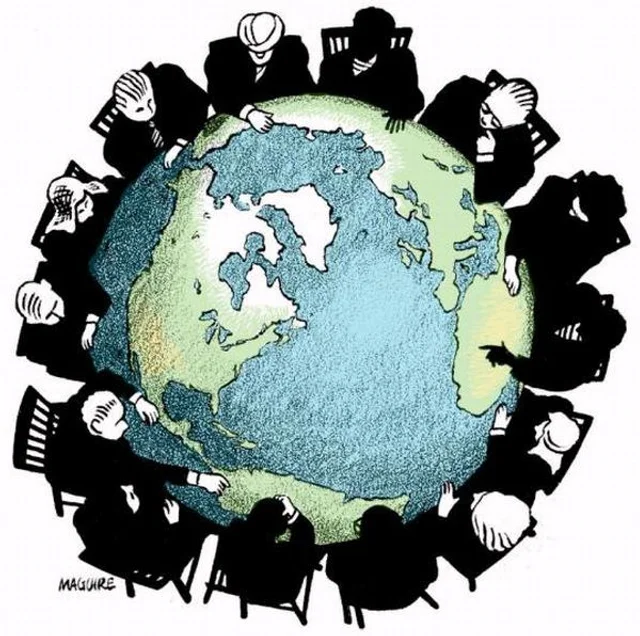Globalization's Political Impact - Analyzing Governance
Explore the influence of globalization on politics and governance. Dive into the effects of global forces on political systems and decision-making

The Globalization Paradox: Navigating the Impact on Politics and Governance
Globalization, a multifaceted phenomenon characterized by the integration of economies, cultures, and societies across borders, has undoubtedly transformed the world in unprecedented ways over the past few decades. While its effects are evident in various aspects of our lives, one domain where its impact is particularly pronounced is politics and governance. In this blog, we will delve into the intricate relationship between globalization and these fundamental pillars of society. We will analyze how globalization has both empowered and challenged political structures, reshaped governance paradigms, and brought to light a compelling globalization paradox.
The Globalization Paradox
At the heart of the globalization-politics-governance nexus lies a paradox. On one hand, globalization has facilitated the movement of goods, services, ideas, and people across borders, fostering interconnectedness and cooperation among nations. On the other hand, it has raised serious questions about the ability of traditional political and governance systems to address the challenges and manage the consequences of this interconnectedness. Let's dissect this paradox by examining its impact on politics and governance.
Political Empowerment
Globalization has empowered states and non-state actors alike in several ways:
Economic Growth: Increased trade and investment opportunities have spurred economic growth in many countries. Governments have leveraged globalization to enhance their economic power and provide better living standards for their citizens.
Diplomatic Relations: Globalization has enabled countries to engage in diplomacy more fluidly, fostering international cooperation on issues like climate change, terrorism, and public health. Diplomatic forums and agreements have proliferated, addressing global challenges collaboratively.
Digital Diplomacy: The digital age has given nations new tools to engage in global politics, using social media and digital platforms to project their influence, communicate with citizens, and shape international discourse.
Challenges to Sovereignty
Conversely, globalization has posed significant challenges to the sovereignty and authority of nation-states:
Economic Interdependence: Global economic interdependence means that national economies are influenced by events and policies beyond their borders. This limits a state's ability to control its economic destiny.
Supranational Organizations: The rise of supranational organizations like the United Nations, European Union, and World Trade Organization has shifted some authority away from individual nations to these international bodies, especially in areas of human rights, trade, and security.
Non-state Actors: Transnational corporations, non-governmental organizations (NGOs), and global financial institutions wield significant influence and can sometimes circumvent the authority of nation-states.
Governance Challenges
Globalization has necessitated adaptations in governance structures:
Policy Coordination: Complex global challenges like climate change and pandemics require international cooperation. This compels governments to work together to formulate effective policies, often transcending traditional boundaries.
Regulatory Gaps: Globalization has exposed regulatory gaps in areas such as tax evasion, cybercrime, and environmental protection, which require innovative governance solutions at national and international levels.
Identity and Inclusion: The movement of people across borders has raised questions about cultural and social identities, challenging governments to manage diversity and foster social cohesion.
?Globalization and Political Populism
Globalization has given rise to political populism in many parts of the world. As people experience the disruptions caused by globalization, such as job displacement due to outsourcing or economic inequality, they may turn to populist leaders who promise protectionism and a return to more closed borders. This shift in political sentiment challenges traditional governance structures and may lead to policies that run counter to the spirit of international cooperation.
Governments need to address the concerns of those left behind by globalization while simultaneously promoting the benefits of interconnectedness. This could involve investing in education and job training to equip the workforce with the skills needed for the globalized job market, as well as crafting policies that ensure the gains of globalization are distributed more equitably.
?Globalization and Information Flow
The rapid dissemination of information through digital technology is a double-edged sword. On one hand, it allows citizens to be more informed and engaged in politics, potentially holding governments accountable. On the other hand, it can facilitate the spread of misinformation and fake news, undermining trust in institutions and destabilizing governance.
Governments must adapt to the digital age by promoting media literacy, fact-checking, and transparent communication. They should also regulate social media platforms to curb the spread of false information without infringing on freedom of speech.
?Globalization and the Environment
Globalization has amplified environmental challenges, such as climate change and biodiversity loss. Addressing these issues requires international cooperation and the adoption of sustainable policies. Governments must rethink their approach to environmental governance, recognizing that ecological problems transcend national borders.
Participation in global agreements like the Paris Agreement on climate change is essential. Governments should also invest in clean energy, promote conservation efforts, and adopt green technologies to mitigate the environmental impact of globalization.
?Globalization and Governance Innovations
Globalization has stimulated innovation in governance. It has given rise to concepts like "global governance" and "multilevel governance," recognizing that many issues require cooperation among governments at different levels and across borders. Regional organizations and global institutions play crucial roles in this evolving landscape.
Governments should actively participate in and strengthen these international bodies, contributing to the development of effective and equitable global governance mechanisms. Innovations such as blockchain technology can enhance transparency and accountability in global governance structures.
?Globalization and Cultural Identity
Globalization's flow of people, ideas, and cultures has sparked debates over cultural identity. In an increasingly interconnected world, maintaining cultural diversity and fostering a sense of identity is a challenge for governance.
Governments should embrace cultural diversity as a source of strength, promoting inclusive policies that respect and celebrate various cultural identities. This includes supporting multicultural education, protecting indigenous rights, and creating spaces for cultural exchange.
The impact of globalization on politics and governance is multifaceted, presenting both opportunities and challenges. Governments must adapt to this evolving landscape by promoting international cooperation, addressing the concerns of those left behind, and leveraging technology to enhance transparency and efficiency.
The globalization paradox persists, but with thoughtful governance and a commitment to collaboration, it is possible to navigate these challenges and harness the full potential of globalization for the betterment of societies worldwide. In doing so, we can build a more equitable, sustainable, and inclusive global future.
What's Your Reaction?
















